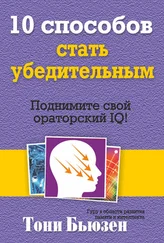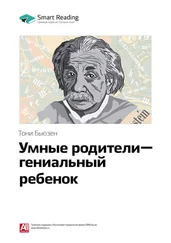funny
voyage
mobile
factory
Answer: Vocabulary
Word Puzzle Number 16
Poker
Word Puzzle Number 17
prime
opera
bower
knight
Answer: Brain Power
Word Puzzle Number 18
Dual
Word Puzzle Number 19
engine
biology
vital
picture
Answer: Intelligence
Word Puzzle Number 20
Thunder – clouds produce rain; lightning produces thunder
Word Power Booster Answers
Word Power Booster Number 1
(c) To bring in or present
‘I would like to introduce you to my new friend, as I am sure both of you have much in common.’
(b) To bend inward
‘We need to introflex the material in order to provide greater stability.’
(a) Capable of receiving into itself
‘We need an introceptive object in order to contain this material.’
(a) The act of going in; entering
‘In biology, introgression has acquired the specific meaning of transferring genetic information from one species into another.’
(d) To throw into
‘I would like to introject some new ideas into this important creative discussion.’
(c) To allow to enter; insert (from the Latin ‘ mittere ’, ‘to send’)
‘We intromit our hands into gloves.’
(a) To look within (from the Latin ‘ specere ’, ‘to look at’)
‘When I examine my own thoughts and feelings I introspect.’
(b) To insert (from the zoological term ‘intromittent’, meaning adapted for insertion)
‘Intromission is necessary if conception is to be achieved.’
(a) One who turns inward (from the Latin ‘ vertere ’, ‘to turn’)
‘He was an introvert, keeping himself to himself, shunning company, and constantly contemplating the meaning of life.’
(b) Pressure within (from the Latin ‘pressura’, ‘a pressing’)
‘His constant worrying resulted in increasing intropression.’
Word Power Booster Number 2
(a) Teacher-like; instructive (from the Greek ‘ didaskein ’, ‘to teach’)
‘When explaining things, she had a didactic manner.’
(c) Stealthy or secret (from the Latin ‘ surripere ’, ‘to steal’)
‘The surreptitious behaviour going on around him eventually made him feel uneasy.’
(d) Revolutionary; contrary to the official/established viewpoint (from the Greek ‘ hairesis ’, ‘choice’
‘Their heretical beliefs led them into direct conflict with the government, schools and church.’
(b) Abundant; plentiful (from the Latin ‘ copia ’, ‘plenty’)
‘After the perfect summer and autumn, with ideal conditions for plants, the abundant harvest yielded a copious supply of fruit, corn and vegetables.’
(c) Vital (from the Latin ‘ imperare ’, ‘to command’)
‘It is imperative to upgrade the education system if the nation wishes to be culturally and economically successful.’
(b) Incapable of being erased; indelible (from the French ‘ effacer ’, ‘to obliterate’)
‘The memories of their time together were so vivid, so wonderful that they could never be destroyed. They were ineffaceable.’
(b) Priceless; immeasurable (from the Latin ‘ aestimare ’, ‘to determine, appraise’)
‘Despite the attempts of people to price the drawings and paintings of Leonardo, they are of inestimable value.’
(a) Never known or done before (from the Latin ‘ prae ’, ‘before’ and ‘ cedere ’, ‘to go’)
‘The success of the Beatles was an unprecedented musical phenomenon.’
(b) Unambiguous; leaving no doubt (from the Latin ‘ equi ’, ‘equally’ and ‘ vocare ’, ‘to call’)
‘Her statement was so clear; so plain that it was impossible to misunderstand her – it was an unequivocal statement.’
(a) Bluntly and unconditionally expressed (from the Greek ‘ kategorein ’, ‘to state, assert’)
‘Her statement was categorical; there were no ifs, ands or buts about it – it was absolute.’
Word Power Booster Number 3
(d) Fearless (from the Latin ‘ in ’, ‘not’ and ‘ trepidus ’, ‘fearful, timid’)
‘The intrepid explorers faced every obstacle and challenge with not a trace of fear. They were undaunted.’
(b) Cannot be taken (from the old French ‘ prendre ’, ‘to seize or take’)
‘The fortress was built to resist any attack; it was built to be impregnable.’
(c) Unable to be changed (from the Latin ‘ in ’, ‘not’ and ‘ alter ’, ‘other’)
‘His views on the environment were so much a part of the fabric of his soul that they were unalterable.’
(d) Of chief importance (from the old French ‘ par ’, ‘by’ and ‘ amont ’, ‘above’)
‘She said that her family were her main reason for living; they were of paramount importance to her.’
(b) Exacting (from the Latin ‘ rigor ’, ‘stiffness’)
‘In order to win five consecutive Olympic Gold Medals, Sir Steve Redgrave participated in one of the most rigorous training programmes imaginable.’
(a) Unqualified (from the Latin ‘ in ’, ‘not’ and ‘ mitigare ’, ‘to soften, alleviate’)
‘Because of their rigorous preparation, their cultural tour was an unmitigated success.’
(c) Reaching the highest point (from the Greek ‘ klimax ’, ‘ladder’)
‘The climax of her career was receiving the Nobel Peace Prize.’
(a) Most sacred; inviolable (from the Latin ‘ sacer ’, ‘sacred’ and ‘ sanctus ’ / ‘ sancire ’, ‘to hallow’)
‘His studio was like a temple; no one but himself was allowed in – he considered it sacrosanct.’
(c) Unable to be called into question; irreproachable
‘Although Bill Clinton was not impeached, his character is certainly not unimpeachable!’
(b) Loud and clear (from the Latin ‘ clarus ’, ‘clear’)
‘The call to arms was a clarion call for immediate action and mobilization.’
Word Power Booster Number 4
(a) Belief that God is non-existent (from the Greek ‘ a ’, ‘not’ and ‘ theos ’ ‘God’)
‘By definition no atheist believes in the existence of God!’
(b) Uncertainty about God (from the Greek ‘ a ’, ‘not’ and ‘ gnostos ’, ‘known’)
‘Agnostics admit that they don’t have enough knowledge to decide on whether or not God exists, and consider Atheists too dogmatic.’
(c) Generous and unselfish (from the Latin ‘ alter ’, ‘other’)
‘Being an altruist she gave generously to charitable causes.’
(d) One interested in selfish advantage (from the Latin ‘ ego ’, ‘I’)
‘Do egoists normally get along with altruists? Usually no; they are opposites.’
(b) One who loves good food; a gourmet (from the Greek philosopher Epicurus, known for his love of the good things in life)
‘The Epicure prepared a dinner that was the most fine, aromatic and delicious they had ever had.’
(d) One who believes that events are determined by fate (from the Latin ‘ fatum ’, ‘prediction’)
‘Because he could not bear the pain of the unfortunate events that had happened to him, he became a fatalist, believing that the Universe had predetermined the events of his life.’
Читать дальше












